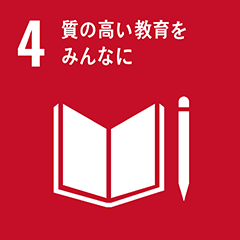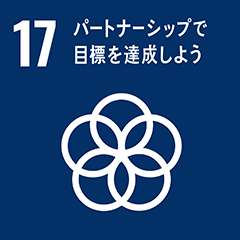Inochi Declaration
Through learning and dialogue facilitated by games, feel the contrast between a world with a shared goal and one without—and co-create an inclusive society where everyone can shape the future together.
The Sustainable Development Goals (SDGs) were established in 2015 as a set of global targets to be achieved by 2030. Prior to that, the Millennium Development Goals (MDGs) served a similar purpose, and now the framework for what comes after the SDGs is under discussion. What is most crucial is that these goals are not just transient policy agendas—they represent a broader, long-term transformation in which humanity has been attempting to shift toward a world united by shared global objectives since the end of the last century. In the 20th century, nations and corporations primarily pursued their own interests, leading to devastating consequences such as two world wars and large-scale environmental destruction. By contrast, the 21st century challenges us to collaboratively update society through shared goals that reflect the needs of our time. This understanding is fundamental to any meaningful engagement with the SDGs.
Yet, current approaches to SDG education often focus solely on the acquisition of knowledge, lacking opportunities for people to truly feel the essence of the goals. To awaken a sense of agency toward co-creating the future, what we need is not just information, but a learning experience that allows people to viscerally sense the difference between a world with shared goals and one without.
In response to this need, SUNABA Corporation developed a board game titled “Get The Point”, designed for all ages— from children to adults. Rather than emphasizing knowledge of individual SDGs’ goals, the game aims to foster an understanding of why it is meaningful for the world to have shared goals. Through gameplay, participants simulate both societies with shared objectives and those without, coming to appreciate the importance of cooperation and dialogue. This is not merely about acquiring knowledge; it is a transformative experience that encourages players to reflect on and shift their own thinking and behavior.
The game has already been customized and deployed in collaboration with local governments across Japan, adapting its content to regional issues. It is currently in use in schools and community centers in seven municipalities.
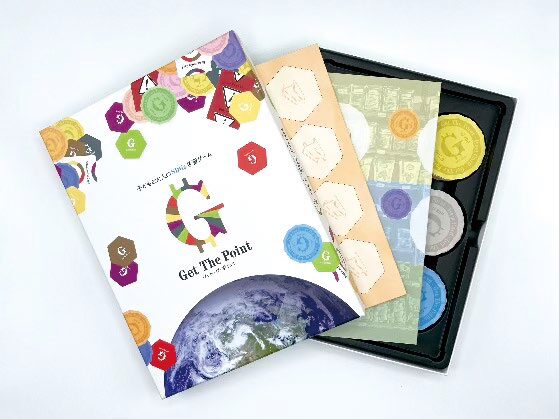
Board Game “Get The Point”
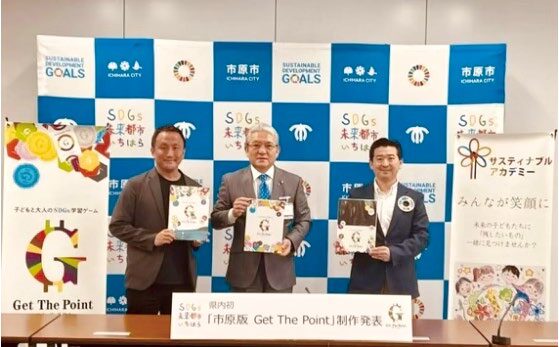
A localized version was launched in Ichihara City, Chiba Prefecture
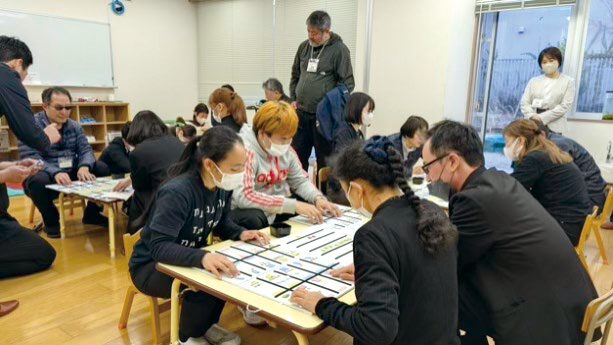
“Touch The Point” experience session
To broaden access to this learning tool, SUNABA is also developing an inclusive version called “Touch The Point” for people with visual impairments. In this version, the gameplay revolves around tactile interaction, enabling everyone— regardless of visual ability—to learn and engage together. The project also explores a model in which people with visual impairments themselves serve as facilitators, fostering inclusive educational spaces.
SUNABA Corporation will promote the following three actions toward 2050:
1.Expanding and Evolving “Get The Point”
Building on past success, they will further collaborate with schools, businesses, and municipalities to provide sustainable learning environments. Looking ahead, they aim to expand the program globally, offering opportunities to explore shared global goals beyond national borders.
2.Creating Inclusive Spaces for Learning and Dialogue
By utilizing “Touch The Point”, they will increase opportunities for shared learning regardless of physical ability.
They also plan to develop experiential workshops that bring together people from diverse backgrounds, contributing to the realization of a truly inclusive society.
3.Expanding Game-Based Learning Programs
Currently, they are also developing and implementing an anti-bullying workshop using gameplay. These workshops offer children a chance to explore why bullying occurs and how it can be prevented. Going forward, they will continue to apply game-based learning to social issues, promoting deeper understanding through experience.
Learning about the SDGs and social challenges should go beyond acquiring knowledge, it should be a profound, embodied experience. The Inochi Forum will continue to support the dissemination of educational methods that integrate games and dialogue-based workshops as powerful tools to deepen such learning.
[References]
・“Get The Point” – SDGs Learning Game for Children and Adults:
https://www.sdgsgtp.com/
[Action Platform]
Education and Children
[SDGs]
